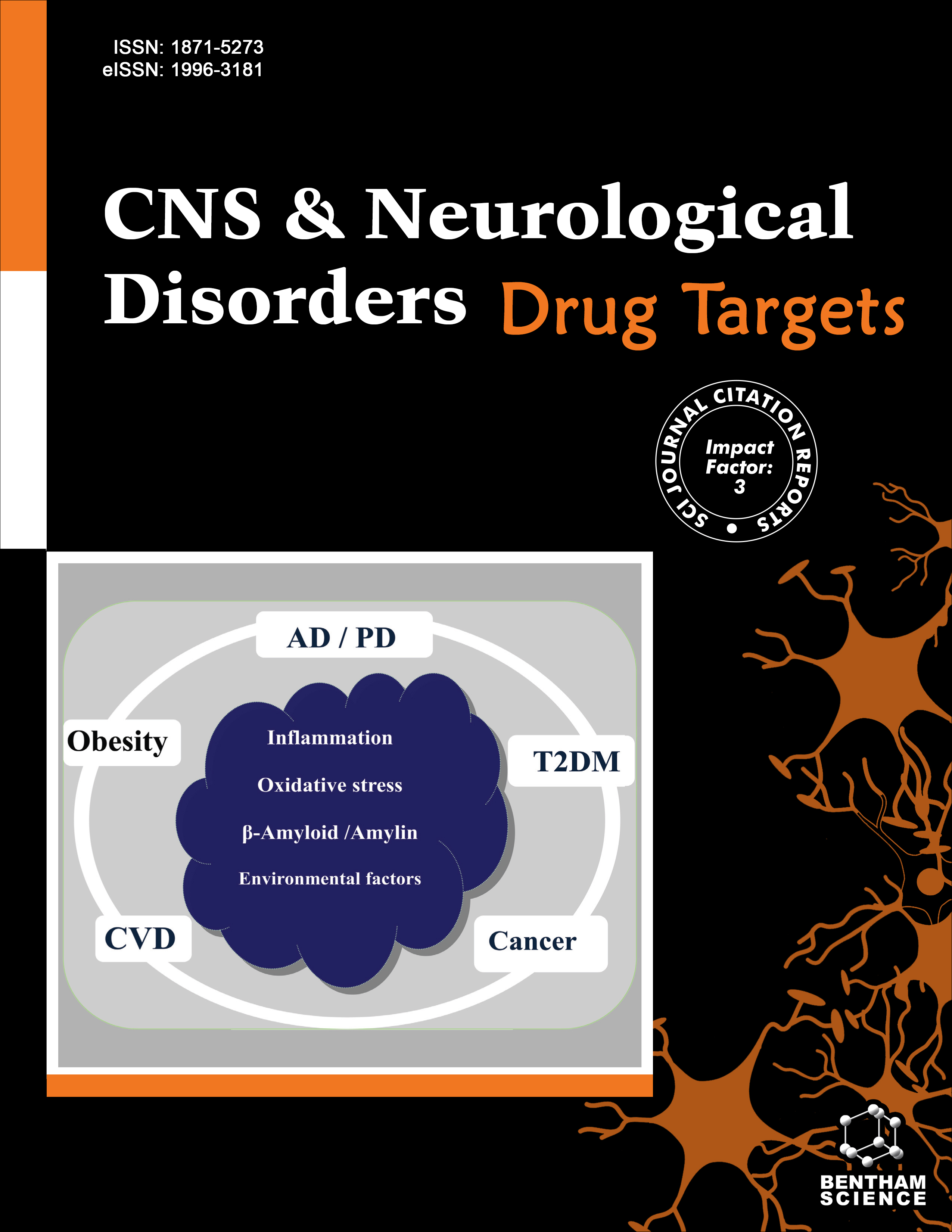-
s Role of G-Proteins and GPCR-Mediated Signalling in Neuropathophysiology
- Source: CNS & Neurological Disorders - Drug Targets, Volume 22, Issue 1, Jan 2023, p. 2 - 5
-
- 01 Jan 2023
Abstract
G-protein-coupled receptors (GPCRs) are activated by manifold neurotransmitters, and their activation, in turn, evokes slow synaptic transmission. They are profoundly related to numerous psychiatric and neurological disorders such as schizophrenia and Parkinson's disease. The significant malady indications for GPCR modulators demonstrate a change towards obesity, diabetes, and Alzheimer's disease, while other central nervous system disorders persist highly represented. GPR52, GPR6, and GPR8 are recognised as orphan GPCRs, co-exist either with both the dopamine D2 and D1 receptors in neurons of the basal ganglia or with the dopamine D2 receptor alone, and recommend that between these orphan receptors, GPR52 has the maximum potential of being a therapeutic psychiatric receptor. Genetically modified creature models and molecular biological investigations have suggested that these improved GPCRs could be potential therapeutic psychiatric receptors. In this perspective, the role of molecular targets in GPCR-mediated signalling has been discussed that would be novel drug design and discovery options for a scientist to elaborate previous knowledge with modern techniques.


